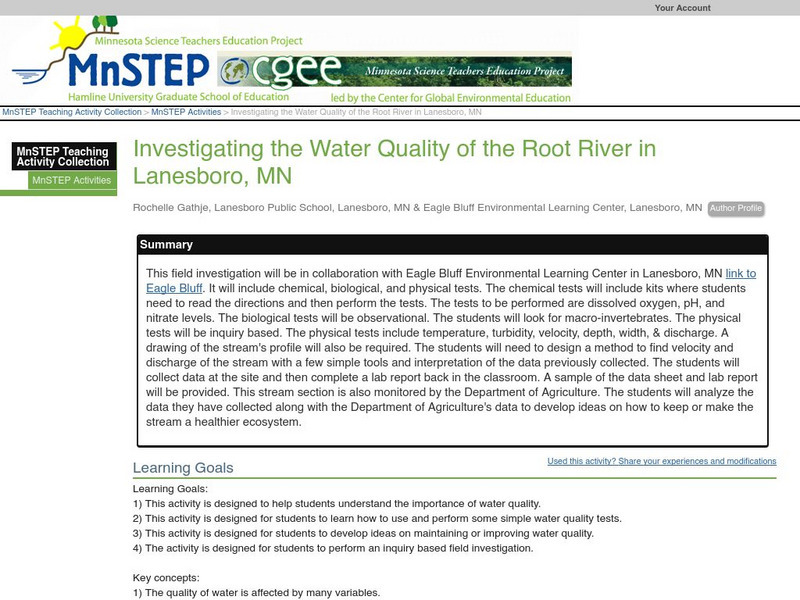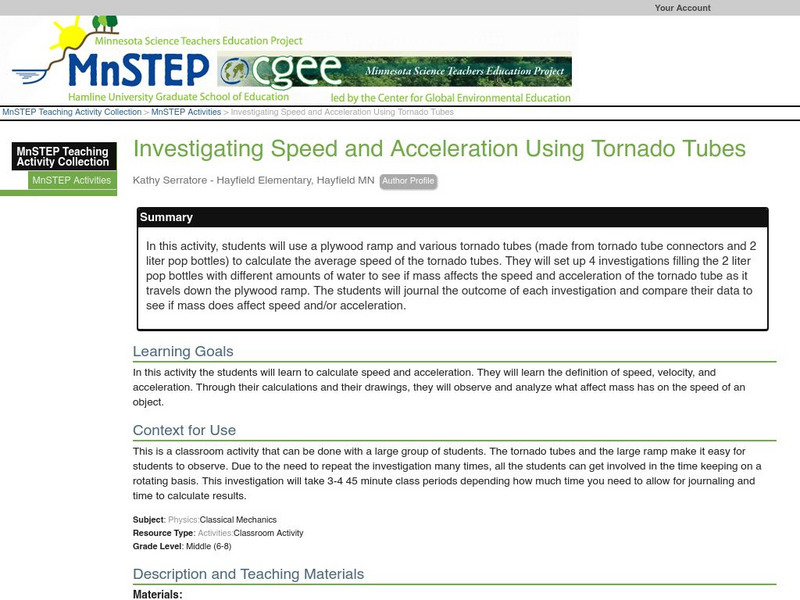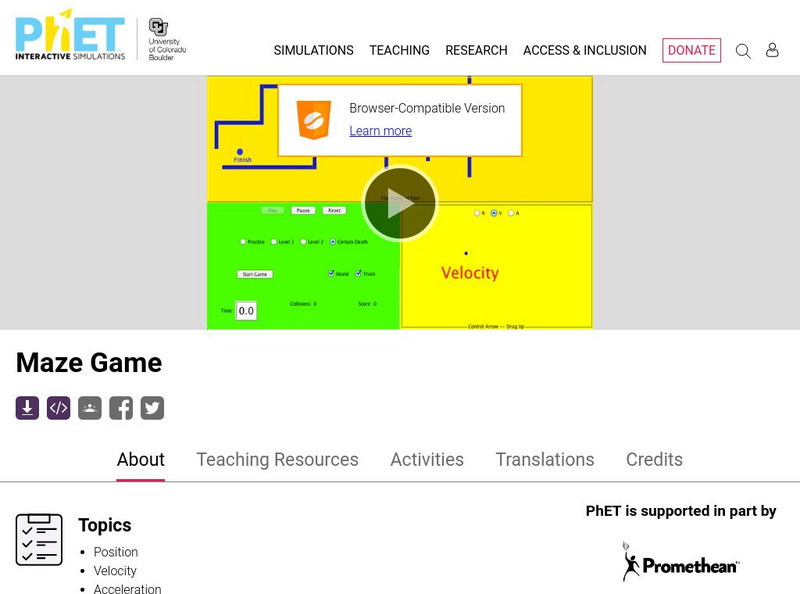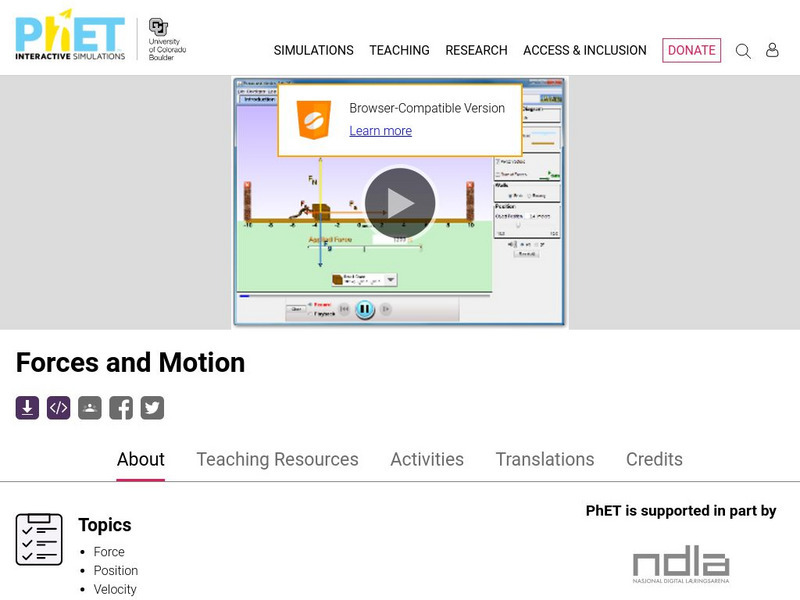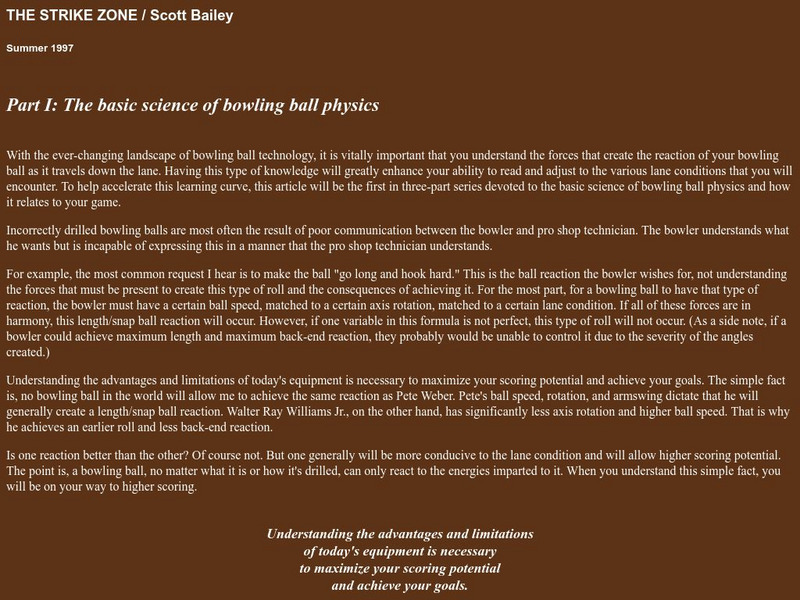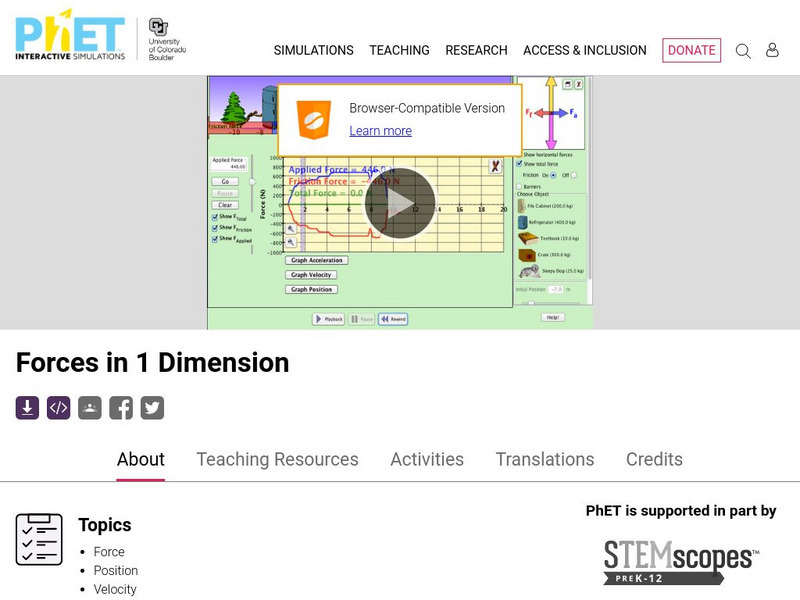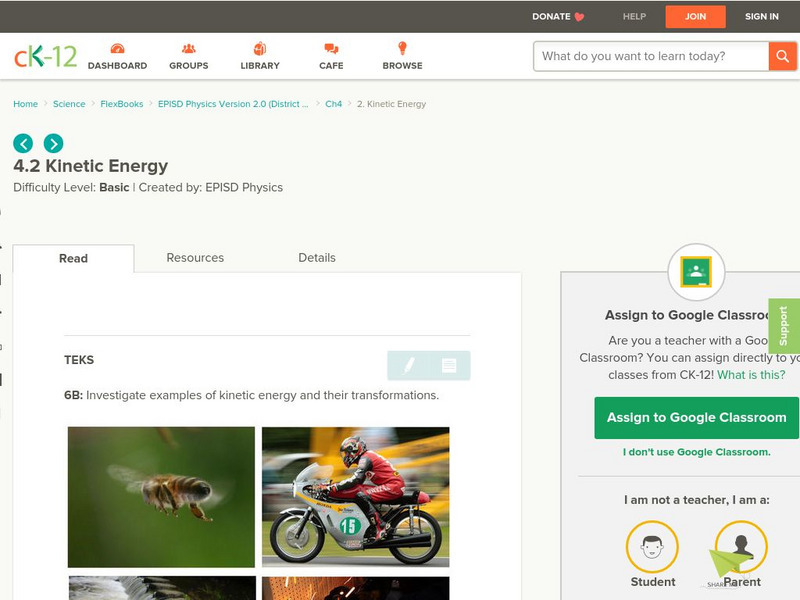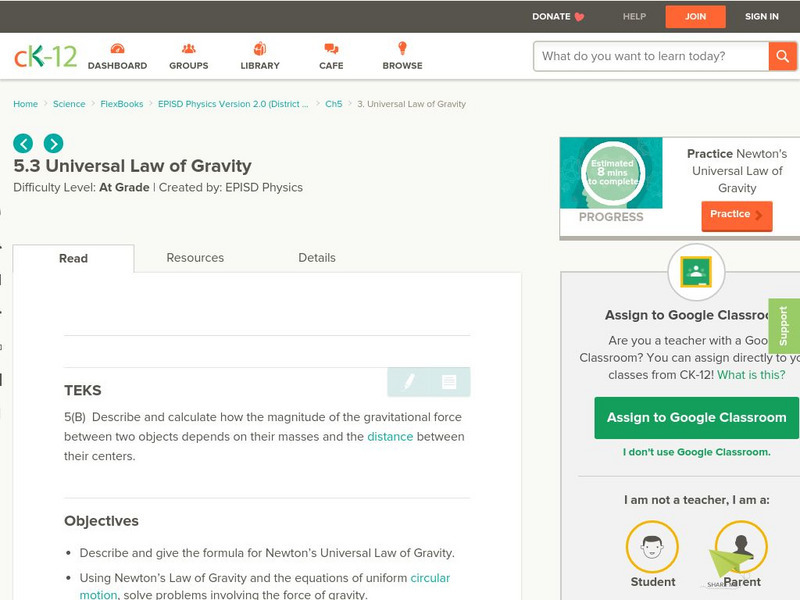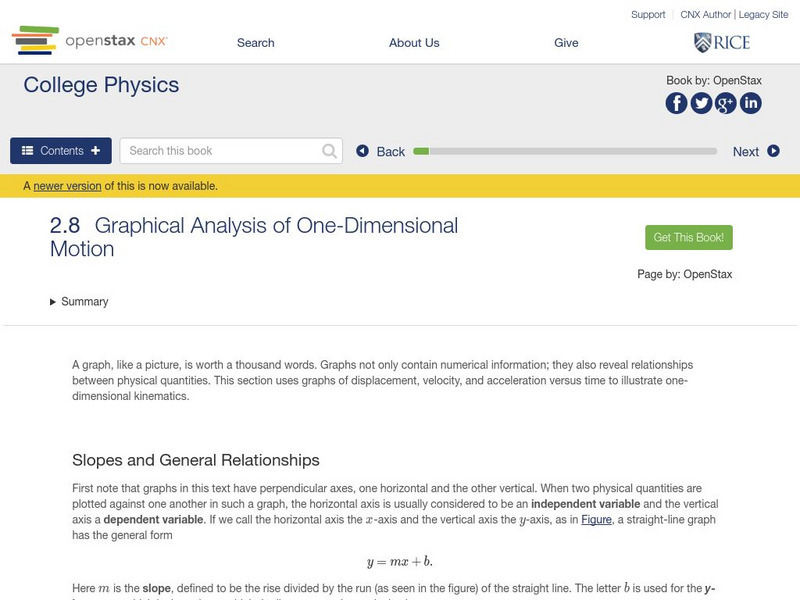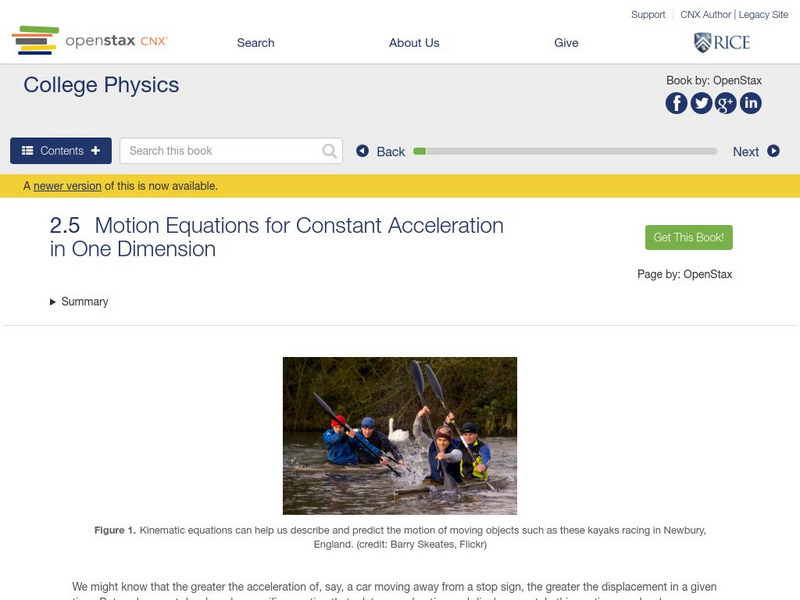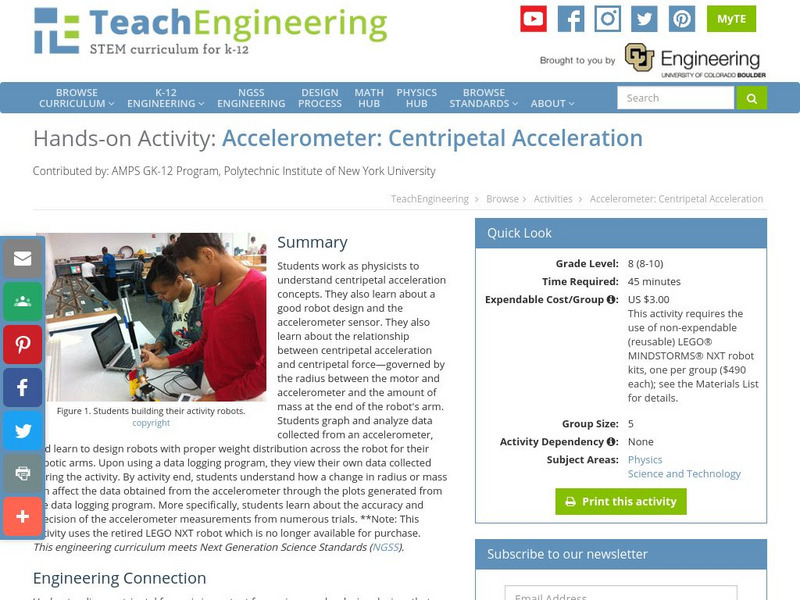Science Education Resource Center at Carleton College
Serc: Investigating the Water Quality of the Root River in Lanesboro, Mn
This field investigation will be in collaboration with Eagle Bluff Environmental Learning Center in Lanesboro, MN link to Eagle Bluff. It will include chemical, biological, and physical tests. The chemical tests will include kits where...
Science Education Resource Center at Carleton College
Serc: Investigating South Crow River: Discharge, Turbidity, Erosion, Sediments
In this field investigation, small groups of students will observe and measure characteristics of the South Crow River near Mayer, Minnesota. Data collection on these characteristics will include but not be limited to: speed of current...
Science Education Resource Center at Carleton College
Serc: Investigating Speed and Acceleration Using Tornado Tubes
In this activity, students will use a plywood ramp and various tornado tubes (made from tornado tube connectors and 2 liter pop bottles) to calculate the average speed of the tornado tubes. They will set up 4 investigations filling the 2...
Science Education Resource Center at Carleton College
Serc: Investigating Motion: Calculating and Graphing Students Walking Speed
In this activity students will collect and analyze data of their walking speed. They will compare their speed to an outside speed walker. They will determine their speed every 20 meters up to 100 meters. They will complete five trials to...
PBS
Pbs Teachers:dragonfly Tv Cup
Apply knowledge of motion, forces and lift while sailing a boat around a race course.
University of Colorado
University of Colorado: Ph Et Interactive Simulations: Maze Game
Learn about position, velocity, and acceleration in the "Arena of Pain." Use the green arrow to move the ball. Add more walls to the arena to make the game more difficult. Try to make a goal as fast as you can.
University of Colorado
University of Colorado: Ph Et Interactive Simulations: My Solar System
An interactive simulation that teaches about motion, acceleration, and velocity by allowing students to build their own solar system and watch the effects of gravitational pull and how that changes with initial position, velocity, and...
University of Colorado
University of Colorado: Ph Et Interactive Simulations: Forces and Motion
Explore the forces at work when you try to push a filing cabinet. Create an applied force and see the resulting friction force and total force acting on the cabinet. Charts show the forces, position, velocity, and acceleration vs. time.
University of Colorado
University of Colorado: Ph Et Interactive Simulations: Collision Lab
An interactive air hockey simulation that teaches about collisions, momentum, and velocity. This simulation can either be downloaded or played online and includes handouts, lesson plans, and additional materials.
Other
Ncaba: The Basic Science of Bowling Ball Physics
This site from the National Capital Area Bowling Association gives information on why it is vitally important that you understand the forces that create the reaction of your bowling ball as it travels down the lane.
University of Colorado
University of Colorado: Ph Et Interactive Simulations: Forces in One Dimension
Use this simulation to see the results of applying a force to move an object. Analyze forces and friction using graphs.
CK-12 Foundation
Ck 12: Kinetic Energy
[Free Registration/Login may be required to access all resource tools.] In this online lesson students will begin to investigate examples of kinetic energy and their transformations.
CK-12 Foundation
Ck 12: Momentum
[Free Registration/Login may be required to access all resource tools.] In this online tutorial students will begin to calculate the momentum of a physical system.
CK-12 Foundation
Ck 12: Universal Law of Gravity
[Free Registration/Login may be required to access all resource tools.] In this online tutorial students will learn to describe and calculate how the magnitude of the gravitational force between two objects depends on their masses and...
Khan Academy
Khan Academy: What Are Position vs. Time Graphs?
What can you learn from graphs that relate position and time and how are they useful? Article relates what the verticle axis, slope, and curvature represents on a position graph and provides examples.
Khan Academy
Khan Academy: What Is Acceleration?
Provides definitions, examples, and formulas for acceleration.
Khan Academy
Khan Academy: What Are Acceleration vs. Time Graphs?
What can you learn from graphs that relate acceleration and time? This tutorial takes a look at the vertical axis, slope, and area on a graph and provides examples.
Khan Academy
Khan Academy: What Are the Kinematic Formulas?
Featured are the kinematic formulas or main equations you can use to analyze situations with constant acceleration.
OpenStax
Open Stax: Graphical Analysis of One Dimensional Motion
In the following interactive module students will describe a straight-line graph in terms of its slope and y-intercept. They will determine average velocity or instantaneous velocity from a graph of position vs. time.
OpenStax
Open Stax: Falling Objects
In the following interactive module, students will describe the effects of gravity on objects in motion. They will also describe the motion of objects that are in freefall and calculate the position and velocity of objects in freefall.
OpenStax
Open Stax: Physics: Addition of Velocities
In the following interactive students will begin to apply principles of vector addition to determine relative velocity and explain the significance of the observer in the measurement of velocity.
OpenStax
Open Stax: Physics: Motion Equations for Constant Acceleration in One Dimension
In this interactive module, students will calculate displacement of an object that is not accelerating, given initial position and velocity. They will also calculate final velocity of an accelerating object, given initial velocity,...
OpenStax
Open Stax: Rotation Angle and Angular Velocity
In the following interactive students will begin to define arc length, rotation angle, radius of curvature and angular velocity. They will also calculate the angular velocity of a car wheel spin.
TeachEngineering
Teach Engineering: Accelerometer: Centripetal Acceleration
Students work as physicists to understand centripetal acceleration concepts. They also learn about a good robot design and the accelerometer sensor. They also learn about the relationship between centripetal acceleration and centripetal...


